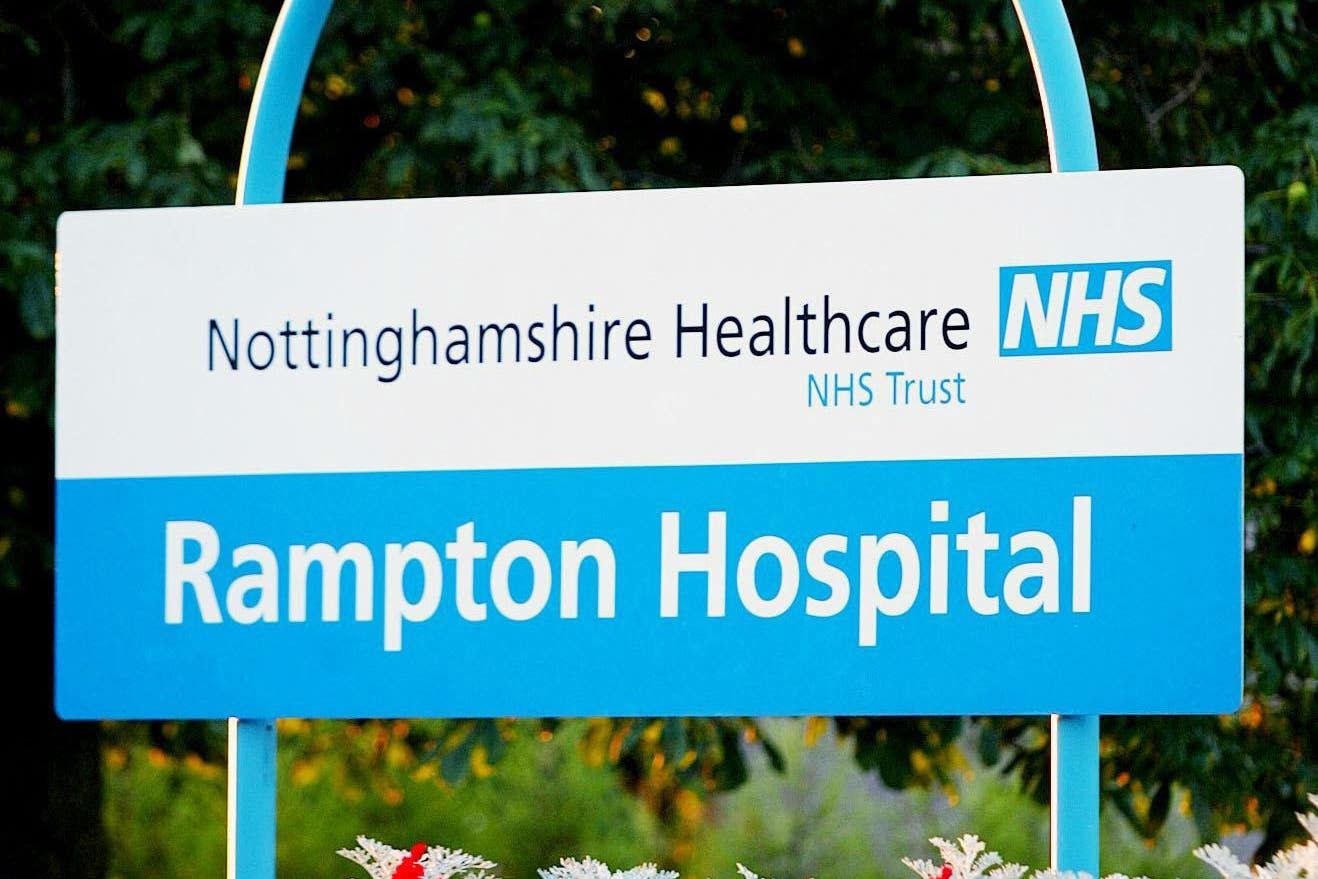Health watchdog takes action against high security psychiatric hospital
A CQC report said ‘confinement exposed patients to an increased risk of harm’.

Your support helps us to tell the story
From reproductive rights to climate change to Big Tech, The Independent is on the ground when the story is developing. Whether it's investigating the financials of Elon Musk's pro-Trump PAC or producing our latest documentary, 'The A Word', which shines a light on the American women fighting for reproductive rights, we know how important it is to parse out the facts from the messaging.
At such a critical moment in US history, we need reporters on the ground. Your donation allows us to keep sending journalists to speak to both sides of the story.
The Independent is trusted by Americans across the entire political spectrum. And unlike many other quality news outlets, we choose not to lock Americans out of our reporting and analysis with paywalls. We believe quality journalism should be available to everyone, paid for by those who can afford it.
Your support makes all the difference.The health watchdog has taken action against a high security psychiatric hospital which has housed serial killers after it was discovered patients were being confined to their rooms for long periods.
Rampton Hospital in Nottinghamshire provides services to people detained under the Mental Health Act 1983, who have learning disabilities, mental illnesses or psychopathic disorders.
Among those housed there are serial killer Beverley Allitt and Deividas Skebas, who stabbed nine-year-old Lilia Valutyte in the heart as she played in the street in Lincolnshire in the summer of 2022.
The inspection by the Care Quality Commission (CQC) took place in June and July, and was a follow-up to a previous inspection in September 2022 which resulted in the facility being warned to make significant improvements.
During the latest inspection, wards were found to be understaffed, with patients locked in their rooms for extended periods of time as a result.
This issue was highlighted at the previous inspection, a CQC report said, adding that “confinement exposed patients to an increased risk of harm”.
There was also evidence of staff not always using measures such as restraint and seclusion appropriately.
Greg Rielly, the CQC’s deputy director of operations in the Midlands, said it was “disappointing” that the trust had failed to make the improvements it was told to carry out following the previous inspection.
“We found the hospital didn’t always have enough nursing and medical staff to keep people safe,” he added.
“Staff regularly confined people to their bedrooms and limited their access to activities and leave from their room, due to low staffing numbers. This meant people weren’t having any fresh air, which wasn’t good for their health and wellbeing.
It was disappointing that levels of restrictive interventions were so high, and often used to manage risks to people, due to low staffing levels
“This was identified at our last inspection – however, the trust hadn’t made the required improvements which increased the risk of people coming to harm.
“Also, staff didn’t always use restraint and seclusion appropriately. It was disappointing that levels of restrictive interventions were so high, and often used to manage risks to people, due to low staffing levels.”
As a result of the visit, Rampton Hospital has been rated as “inadequate” by the CQC.
The watchdog has also taken further enforcement action, which includes the hospital not being able to admit anyone without prior written agreement from CQC.
Mr Rielly added that the trust has informed the CQC it has “made significant improvements around staffing, confinement, and having more people trained in British Sign Language to help support deaf people”.
He said: “We will continue to monitor the hospital closely and will return to carry out another inspection to ensure improvements are sustained and embedded. If this doesn’t happen, we won’t hesitate to take further action in line with our enforcement powers.”
Ifti Majid, chief executive of Nottinghamshire Healthcare, said the safety and wellbeing of patients is a “priority” and staff have since “worked incredibly hard” to improve services.
He claimed the trust has since recruited 75 nurses and healthcare support workers, improved training compliance, reduced daytime confinement and improved communication with deaf patients.
Mr Majid added: “We know from the feedback we have received from the CQC that tangible improvements have been made over the last seven months.
“However we know that we still have more work to do, and importantly we need to embed and sustain all of the improvements we make. We will continue to work closely with the CQC, our colleagues, and importantly those who use our services and their families, to focus on continuing to improve the experience for those who use our services.”
The overall CQC rating for Nottinghamshire Healthcare NHS Foundation Trust remains as “requires improvement”.